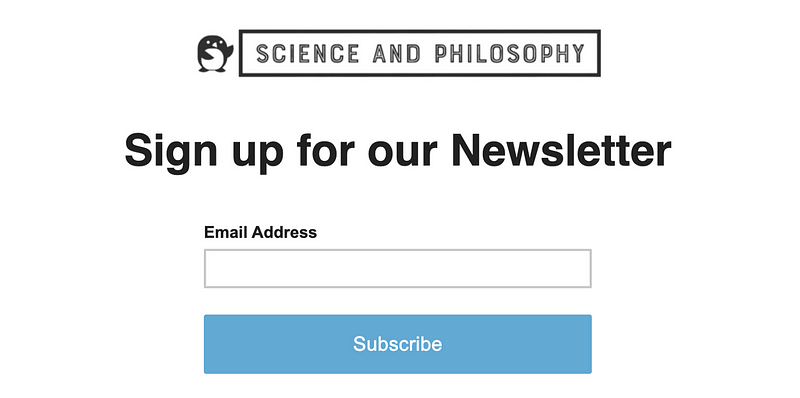Exploring Free Will: The Intersection of Science and Philosophy
Written on
Chapter 1: The Unique Proposal of Edward de Bono
Edward de Bono, the mind behind the concept of “lateral thinking,” presents a novel solution to the enduring Arab-Israeli conflict that deviates from conventional approaches like one-state or two-state solutions. His idea is surprisingly straightforward: Marmite.
De Bono posits that zinc deficiencies, prevalent in the Middle East due to the consumption of unleavened bread, can lead to increased aggression. Given that Marmite is rich in zinc, he suggests that its widespread distribution in the region could help mitigate conflict—albeit in a somewhat tongue-in-cheek manner.
At the heart of this discussion is the notion of free will. De Bono’s exaggerated suggestion aside, it’s evident that factors such as nutrition and living conditions significantly influence what we often perceive as “free” decisions.
To clarify, I define "free will" as the capacity to have made a different choice if circumstances were unchanged but time was reset. This interpretation will be my focus, though alternate definitions exist.
Conversely, “causal determinism” suggests that every occurrence is the result of preceding conditions. The Enlightenment thinker Laplace envisioned a hypothetical entity capable of knowing the entire Universe at any given moment, thereby being able to accurately predict the past and future.
Thus, my definition of free will stands in opposition to Laplace’s determinism. The debate between these competing theories has persisted for centuries. Interestingly, modern science is now inching closer to a resolution, particularly through the lenses of quantum mechanics and behavioral neuroscience.
Section 1.1: Quantum Mechanics and Its Implications
One of the most frequently cited arguments against determinism comes from quantum physics. Heisenberg's uncertainty principle, for example, asserts that there are fundamental limits to our knowledge of certain pairs of physical properties, such as position and momentum.
This raises an intriguing question: How can we assume that consciousness and free will are influenced by the unpredictable nature of quantum phenomena?
In essence, Heisenberg's findings indicate that the Universe operates in a way that is inherently uncertain. This inherent fuzziness suggests that, at the most fundamental level, the Universe does not adhere to deterministic laws, allowing for the possibility of free will. However, several counterarguments challenge this view:
- Quantum mechanics provides probabilities for different outcomes, which implies that while free will may exist, it is constrained by these probabilities. Thus, if the scenario were repeated under identical conditions, the agent might act differently, but certain actions would remain more probable.
- The absence of determinism does not necessarily affirm the presence of free will. Compatibilism suggests that free will and determinism can coexist under various definitions of free will. Additionally, if one were to experience random involuntary actions, this randomness could negate determinism but does not equate to possessing free will.
- Bohr's correspondence principle indicates that quantum mechanics aligns with classical mechanics on a larger scale. Therefore, it remains questionable whether consciousness, which operates at a macroscopic level, is influenced by quantum quirks.
In conclusion, the argument from quantum mechanics does not definitively support free will, even if it does not outright deny it.
The first video titled "Marmite SCUM Server Life - Using the Bot to Order SCUM Packs" explores an innovative approach to managing resources in gaming, akin to the creative problem-solving advocated by de Bono.
Section 1.2: Neuroscience's Perspective on Free Will
While philosophical discussions around free will have spanned millennia, the scientific exploration of this concept, particularly in neuroscience, is relatively recent, tracing back to Benjamin Libet's experiments in the 1970s.
Libet's research uncovered a phenomenon known as the "readiness potential," which occurs approximately 400 milliseconds before a person consciously recognizes their decision to move and about 550 milliseconds before the action takes place. More contemporary studies have extended this lag time to as much as 10 seconds, raising questions about the nature of decision-making.
If our brains are preparing to act even before we are aware of our decisions, can we genuinely uphold the concept of free will? Here are three counterarguments to the idea that neuroscience undermines free will:
- The timing discrepancies observed in experiments raise questions about their accuracy. How can we definitively determine when a conscious choice occurs? While this objection weakens with longer lag times, it still warrants consideration.
- Current experiments primarily focus on straightforward choices, such as moving one hand versus the other. However, real-life decisions are often multifaceted and complex, and results from simple tasks may not apply to these intricate situations.
- Importantly, Libet himself did not interpret his findings as a negation of free will. Evidence suggests that individuals can consciously override the readiness potential at the last moment, indicating that while some decisions may not be freely made, they can still be altered prior to execution.
Both quantum physics and neuroscience have yet to deliver conclusive evidence regarding the existence of free will. Personally, I suspect that we inhabit a more deterministic Universe than we often acknowledge, as de Bono's Marmite analogy illustrates.
However, the debate remains ongoing. As Ludwig Wittgenstein stated, “Whereof one cannot speak, thereof one must be silent.”
The second video, titled "The Mayhem Begins - YouTube Launch Event," delves into the exciting launch of a new platform, mirroring the lively discourse surrounding the themes of free will and determinism.
